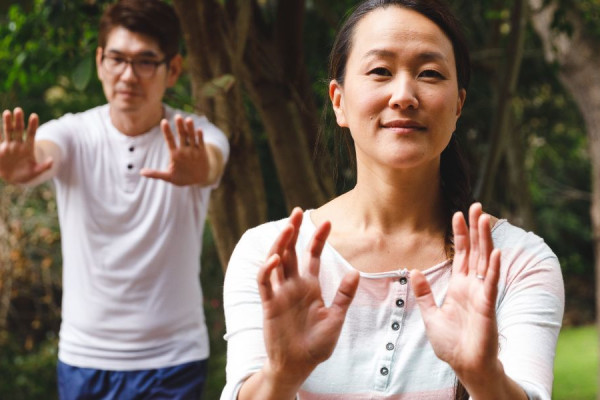More About Rehabs with Tai Chi
Tai chi incorporates gentle movements, a meditative mindset, controlled breathing, and poses to enhance health and wellness. You'll slowly progress through a series of motions during a tai chi class. As you move, you'll focus on connecting your mind and body, feeling each small sensation as you go.
Tai chi began as a martial art form but now focuses primarily on improving health. Rehabs may use tai chi as a meditative grounding practice or a gentle form of exercise.
Benefits of Tai Chi for Addiction And Mental Health
At a rehab for addiction and/or mental health, tai chi can help you become more mindful and present. You can also connect with others during tai chi sessions and grow in camaraderie. Some centers may have a lawn or other outdoor space to enjoy the benefits of tai chi and nature together.
Tai chi can help you maintain physical strength, balance, and flexibility. Feeling well physically can help you feel better mentally, making tai chi beneficial for addiction and mental health recovery.
How Often Do Rehabs Have Tai Chi Sessions?
The frequency of tai chi sessions depends on the rehab you go to, but many with tai chi offer complimentary sessions several times a week—or even daily. Ask the rehab's admission team how often they offer tai chi.
A Typical Session And Safety Precautions
In each tai chi session, you'll typically engage in a few key parts.
- First, you'll warm up by rolling your shoulders, neck, and stretching your back and legs.
- Next, you'll listen to your instructor and slowly practice tai chi motions.
- Your instructor may also incorporate gentle breathing techniques, or breathwork, as you go through the motions.
- Then, you can cool down with gentle stretches or quiet sitting.
Tai chi's slow, gentle nature makes it a safe practice for many. Your instructor may recommend not participating when taking medications that make you dizzy, or if you have health conditions causing pain.
You'll benefit from loose clothes that allow plenty of movement. Wear non-slip shoes with flat, supportive soles.
What to Look For in Tai Chi Instructors
Tai chi has no standards for licensing or training, so technically anyone could be a tai chi instructor. You can generally trust rehabs to choose experienced instructors to lead tai chi sessions. Ask friends, family, or your doctor for recommendations for a local tai chi instructor.














































































